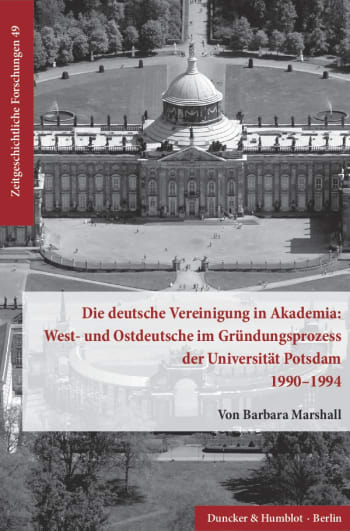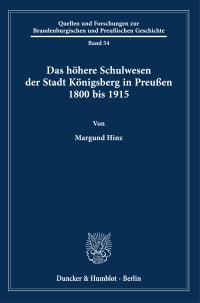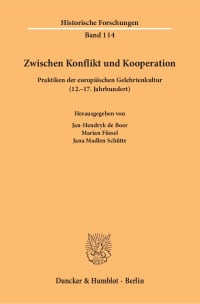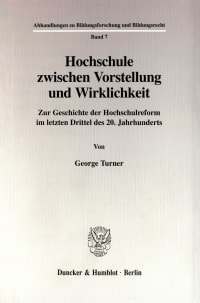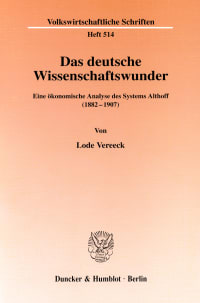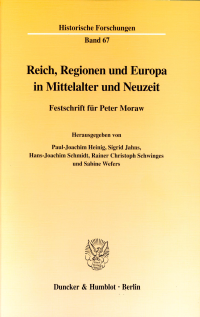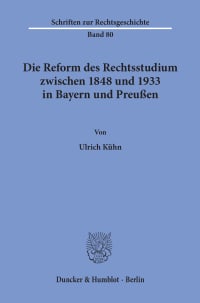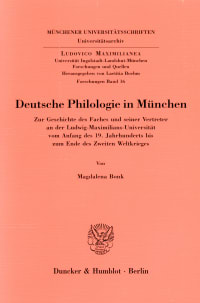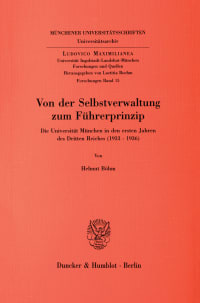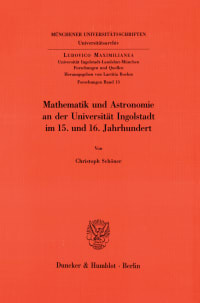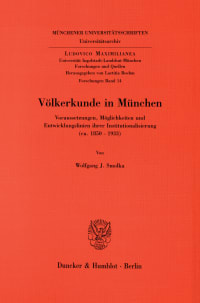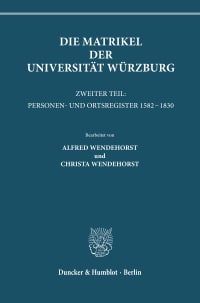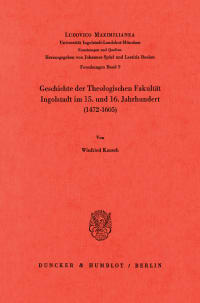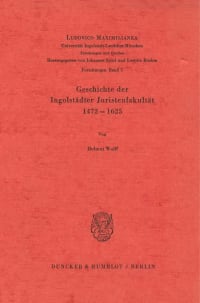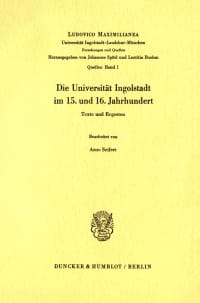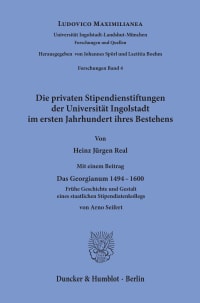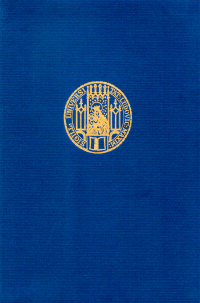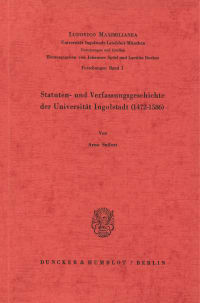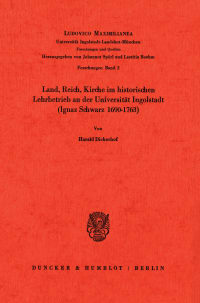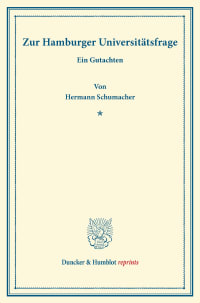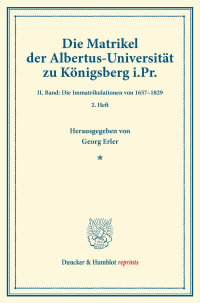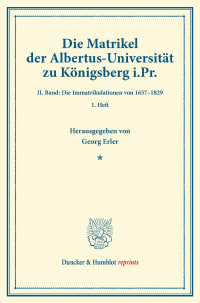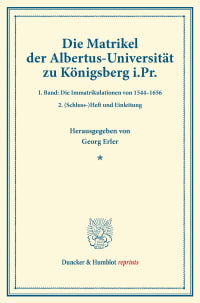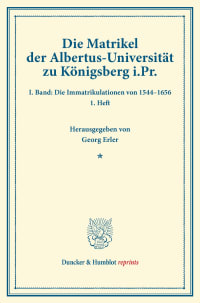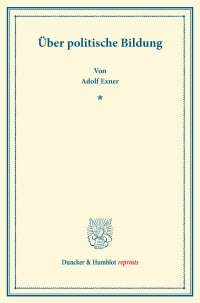Description
»German Unification in Academia: The Roles of West and East Germans in the Founding of Potsdam University, 1991–1994«
The University of Potsdam was not a new institution but incorporated two of three GDR elite institutions based there. This brought a disproportionately large staff with life tenure into the university. It also pitted formerly highly successful and politically experienced East Germans against a small number of West German academics tasked with the introduction of the new academic structures. Here East German interests could be largely preserved. The encounter of these two opposing cultures provides fascinating new insights into the German unification process.
Overview
A. Einführung in das Projekt
Entstehung und Fragestellung – Quellen und Danksagungen
B. Hintergrund: Brandenburg und die Bedeutung von Hochschulgründungen
C. Entwicklungen in den Jahren 1989–1991: »Selbsterhalt durch Selbstreform?«
Die Potsdamer Institutionen und die Ereignisse 1989/90 – Die DDR-Akademie für Staat und Recht und die Hochschule für Recht und Verwaltung – Von der PH zur Brandenburgischen Landeshochschule (BLHS): Universitätsgründung als Überlebensstrategie – Entwicklungen an der BLHS
D. Der rechtlich-politische Rahmen der Universitätsgründung
Der Einigungsvertrag (EV) als bundespolitischer Bezugspunkt – Die Landespolitik Brandenburgs – Das Ministerium für Wissenschaft, Forschung und Kultur (MWFK)
E. West- und Ostdeutsche im Gründungsprozess der Universität 1991–1994
Der (mehrheitlich) westdeutsche Gründungssenat in ostdeutschen Strukturen – Der westdeutsche Beitrag: Die Universitätsstruktur
F. Das zentrale Problem der Universität: die Personalfrage
Ostdeutsche Prioritäten: Der Erhalt der Arbeitsplätze – Die Entwicklung nach der Universitätsgründung – West- und ostdeutsche Interessen: Die Berufungen – Die Herausforderungen einer möglichen Personalerweiterung
G. Die UP und ihre politische Vergangenheit
Hintergrund: die Landespolitik – Die politischen Evaluierungen – Eine Beurteilung
H. Die neue Universität
I. Schlussbemerkungen
Bibliographie und Index
Press Reviews
»Barbara Marshall provides a detailed and engaged analysis of the process by which the university was founded. Although she repeatedly indicates that at the university her project was not universally met with open arms and willing support, she was able to unearth sufficient material and conduct enough interviews to allow her to present a dense and vivid analysis. […] Her study is especially important because it shows for the first time in the case of an East German university after 1989-90 how individual West Germans tried to impose their own personnel policy.« Ilko-Sascha Kowalczuk in: German Historical Institute London Bulletin, Vol. XXXIX, No. 2 (Nov. 2017)
»Sie schreibt quellengestützt, detailliert und mit viel Verständnis sowohl für die bisherige Lebensleistung der mitteldeutschen Wissenschaftler als auch für die Aufarbeitung der westdeutschen Universitätsangehörigen.« Dr. Enno Eimers, in: Das Historisch-Politische Buch, Heft 6/2016
